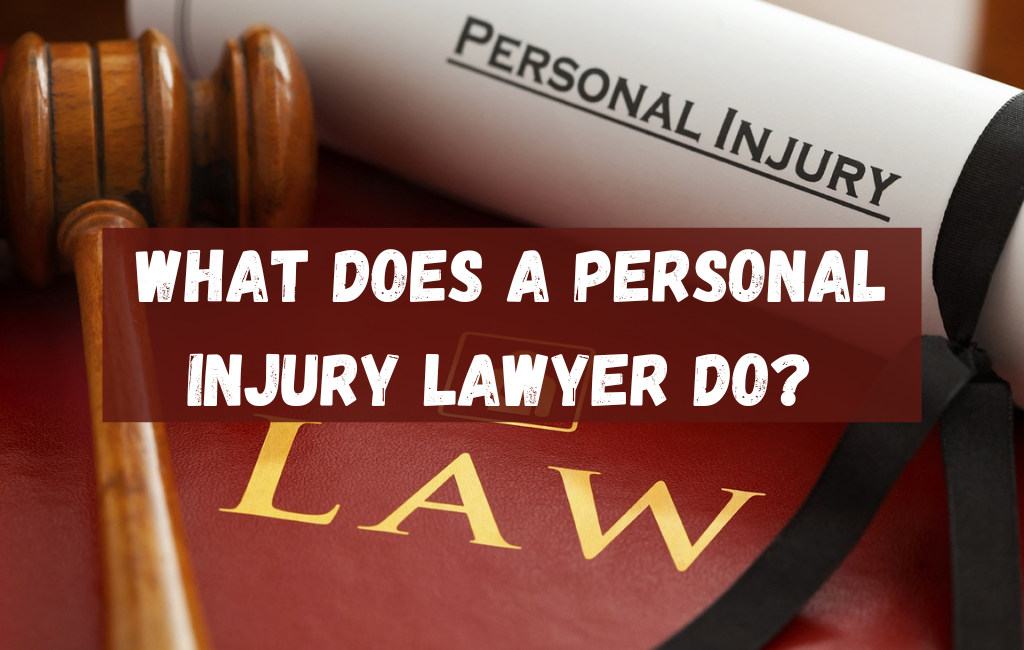Personal Injury Lawyer Defend Rights
When faced with an injury due to someone else’s negligence, the path to justice can be daunting. A personal injury lawyer plays a pivotal role in safeguarding your rights and ensuring you receive the compensation you deserve. This article explores the various ways a personal injury lawyer can protect your rights, supported by examples, case studies, and statistics.
Understanding Personal Injury Law
Personal injury law encompasses legal disputes that arise when one person suffers harm from an accident or injury, and someone else might be legally responsible for that harm. These cases can include car accidents, medical malpractice, slip and fall incidents, and more.
Types of Personal Injury Cases
- Car Accidents
- Medical Malpractice
- Slip and Fall
- Product Liability
- Workplace Injuries
The Role of a Personal Injury Lawyer
A personal injury lawyer provides legal representation to individuals who claim to have been injured, physically or psychologically, as a result of the negligence or wrongdoing of another person, company, government agency, or other entity.
Legal Advice and Guidance
One of the primary roles of a personal injury lawyer is to offer legal advice and guidance. They help clients understand their rights and the legal processes involved in their case. This includes explaining complex legal terms and procedures in a way that is easy to understand.
Investigation and Evidence Gathering
Personal injury lawyers conduct thorough investigations to gather evidence that supports their client’s case. This can involve collecting medical records, accident reports, witness statements, and other relevant documents. The goal is to build a strong case that demonstrates the extent of the injury and the negligence of the responsible party.
Negotiation with Insurance Companies
Insurance companies often aim to minimize the amount they pay out in claims. A personal injury lawyer negotiates with insurance companies on behalf of their clients to secure fair compensation. This includes negotiating settlements that cover medical expenses, lost wages, pain and suffering, and other damages.
Representation in Court
If a fair settlement cannot be reached through negotiation, a personal injury lawyer will represent their client in court. They present the evidence, question witnesses, and make legal arguments to advocate for their client’s rights. This can be a critical step in achieving justice and obtaining the compensation deserved.
Case Studies and Examples
Case Study: Car Accident Settlement
In a notable case, a personal injury lawyer represented a client who was injured in a car accident caused by a distracted driver. The client suffered severe injuries, including broken bones and a concussion. The lawyer conducted a thorough investigation, gathering evidence such as traffic camera footage and witness statements. Through skilled negotiation, the lawyer secured a settlement of $500,000, covering medical expenses, lost wages, and pain and suffering.
Example: Medical Malpractice
Another example involves a medical malpractice case where a patient suffered complications from a surgical procedure. The personal injury lawyer worked with medical experts to establish that the surgeon’s negligence led to the complications. The case went to trial, and the jury awarded the patient $1.2 million in damages.
Statistics on Personal Injury Cases
Statistics provide valuable insights into the prevalence and impact of personal injury cases. According to the National Center for Health Statistics, approximately 31 million people are injured across the United States each year that require medical treatment. Of these, around 2 million are severe enough to require hospitalization.
In terms of financial impact, the Insurance Information Institute reports that the average auto liability claim for bodily injury was $18,417 in 2019. Medical malpractice claims can result in even higher settlements, with the average payout being $348,065 according to a 2019 report by the National Practitioner Data Bank.
Choosing the Right Personal Injury Lawyer
Selecting the right personal injury lawyer is a critical step in protecting your rights. Here are some factors to consider when making your choice:
- Experience: Look for a lawyer with extensive experience in handling personal injury cases similar to yours.
- Reputation: Research the lawyer’s reputation through client reviews, testimonials, and professional ratings.
- Communication: Choose a lawyer who communicates clearly and keeps you informed throughout the process.
- Resources: Ensure the lawyer has the resources to conduct thorough investigations and build a strong case.
- Success Rate: Consider the lawyer’s track record of successful settlements and verdicts.
Conclusion
A personal injury lawyer plays a vital role in protecting your rights and securing the compensation you deserve after an injury. From providing legal advice and gathering evidence to negotiating with insurance companies and representing you in court, their expertise is invaluable. By understanding the role of a personal injury lawyer and choosing the right one for your case, you can navigate the legal process with confidence and achieve the justice you seek.
